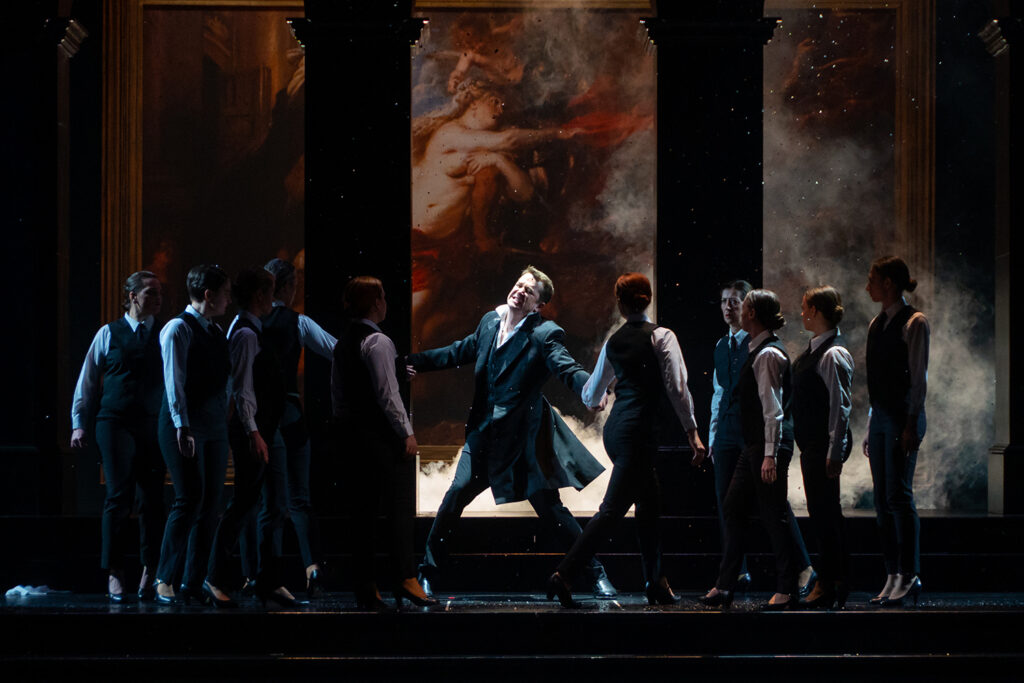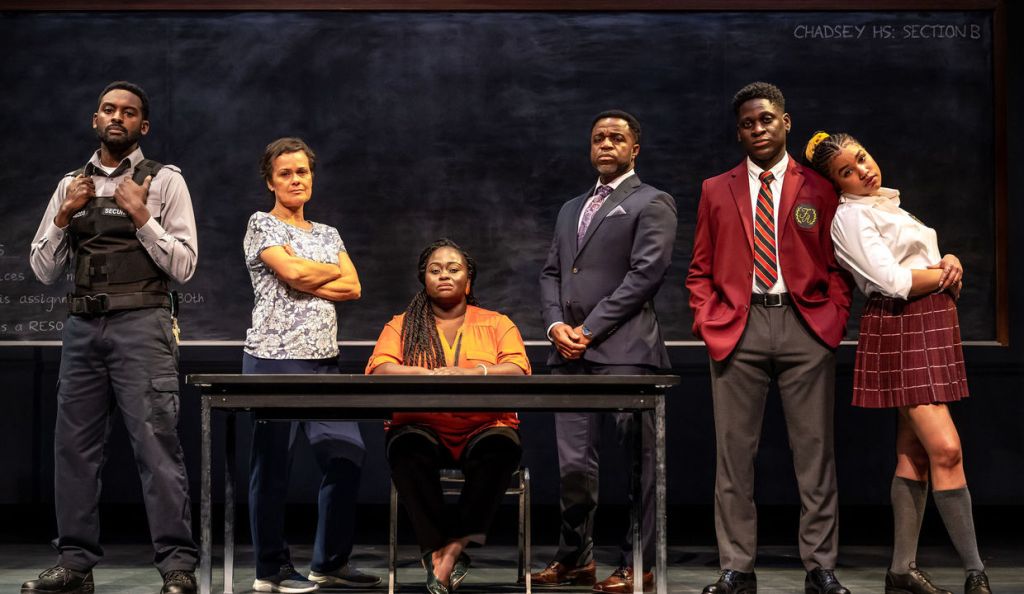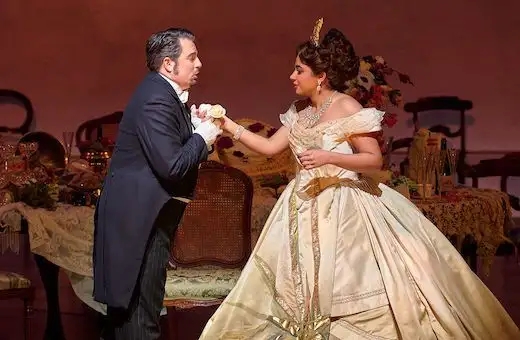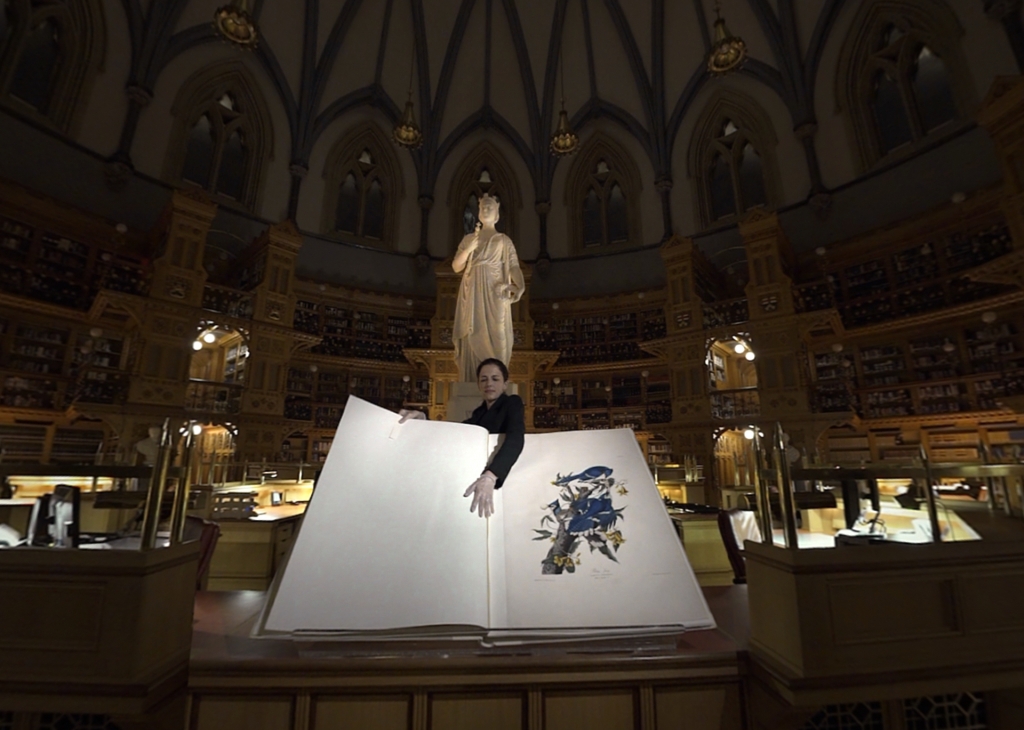
Readers of this blog will know that I am a huge fan of Canadian playwright Hannah Moscovitch. This is the third play I’ve been able to see and review this year alone, following strong productions of Bunny in Vancouver and Sexual Misconduct of the Middle Classes at the Belfry. This play is an early one by Moscovitch, premiering in 2007. Once again, the play impresses me with its attempt to empathize with the child of a Nazi war criminal and his journey of discovery and revenge. James Johnson plays the protagonist Rudi, who is onstage for the entire 85 minute-long performance, a real achievement for a young actor with limited stage experience. While his performance was perhaps a bit one-note, he was able to convey Rudi’s confusion and anger when he discovers the terrible truth about his father’s work as a doctor in Auschwitz, conducting medical experiments on Jewish inmates. He decides to leave Paraguay, where his family fled following the war, and return to Berlin. There he meets a young Jewish woman, Sarah (played by the always effective Melissa Blank), and attempts to turn his life around. The play ends on a note of high tension, as we see Rudi return to Paraguay, perhaps to take his father’s life, or perhaps his own.
The production on Inconnu’s small stage felt a bit cramped, with fencing meant to represent the concentration camp pushing the three actors (MJ Connelly plays Rudi’s childhood friend, who spills the beans on his father’s dark past) into limited playing space. Director Don Keith adds in some movie-like music in certain scenes that I found intrusive, and overall I found the direction less than inspired. But I was happy to see yet another Moscovitch play, that reinforces my opinion that she is one of the most important playwrights in the country. The production closed on May 21st.

The Belfry’s final production of the season is a world premiere by playwright Rosa Dolores, Kindred. The play is about two divorcing couples, Mo (Stephen Lobo) and Soleil (Medina Hahn) and Troy (Andrew McNee) and Elise (Celine Stubel). They each have a young child. The play opens with the couples battling each other, as the wounds inflicted are recent and still raw. As time passes the situation improves, and reaches the point where Soleil and Troy meet up for a first date. While I won’t spoil what happens next, we will also see a scene late in the play bringing Mo and Elise together. Playwright Dolores’ world view seems to reflect a belief voiced by Soleil and Troy that they are ‘givers’ and their exes are ‘takers’. While this may be over-simplistic–people tend to be more complex than being reduced to one type or another–in the world of this play, it does ring true. Firefighter Troy and massage therapist Soleil feel that they have given more than they received from their former partners, and find hope in finding a fellow ‘giver’ to move on with. Takers Elise and Mo are more challenging to portray, as they appear selfish and demanding. But we soften our view of them somewhat when we see them meet up for a candid conversation. Is there perhaps a romantic spark there as well?
All four actors offer nuanced and solid performances; I particularly liked Andrew McNee and Medina Hahn’s work. I have seen McNee on stage in Vancouver a number of times, and he always appeals as a warm presence, as does Hahn here. Their long first date scene was surprisingly moving, as they trip all over themselves in holding back and then oversharing. We root for them, and the actors’ work makes us hope that they will make it together. Lobo and Stubel have to harder job here, as their characters are less likeable, but they round them out over the course of the play.
Director Lauren Taylor moves the action along well in this 90 minute long one-act play. She is supported by designer Pam Johnson’s effective set design, a house front with a revolve bringing set pieces on and off stage. While this play offers a modest ambition in its blend of comedy and drama, its pleasures overall make for an appealing good night out. Runs until June 12th with tickets at www.belfry.bc.ca.
ENDNOTE: The digital program for the production neglects to offer a note from the playwright or director on the play (or even a bio of the playwright!). I miss these elements, as they can offer insights into what I am about to see. Dear Belfry, please bring back these notes!



